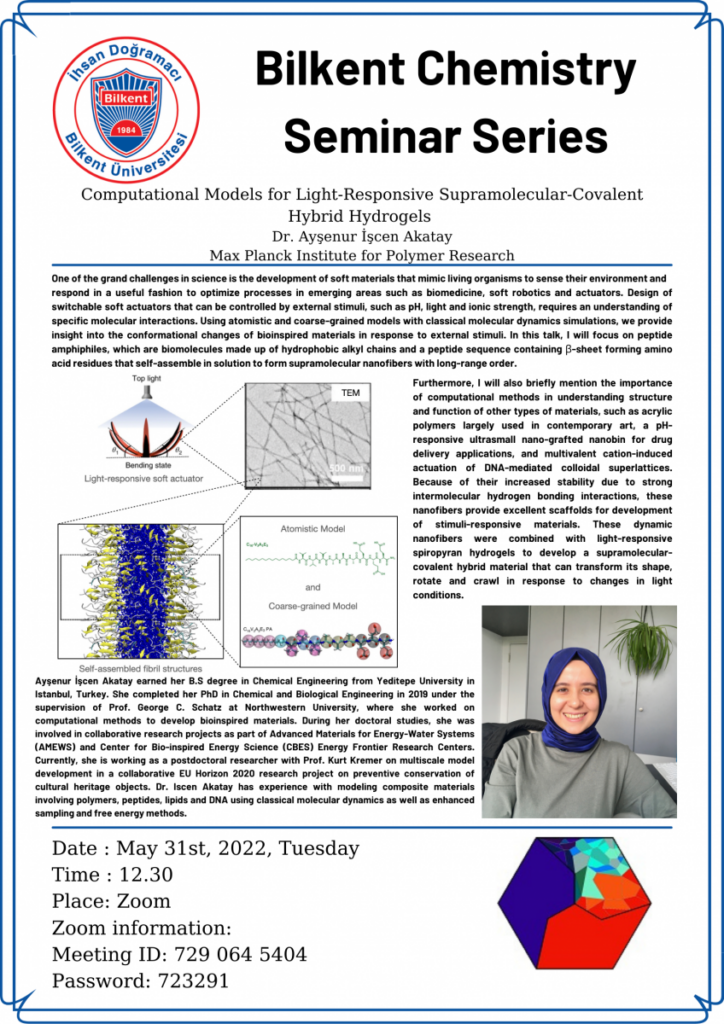Spring '22 Department Seminars with Dr. Ayşenur İşcen Akatay
Title: Computational Models for Light-Responsive Supramolecular-Covalent Hybrid Hydrogels
Speaker: Dr. Ayşenur İşcen Akatay
Department of Polymer Theory, Max Planck Institute for Polymer Research
Mainz, Germany
Date: May 31st, 2022, Tuesday
Time: 12:30
Place: Zoom

Abstract:
One of the grand challenges respond a useful fashion to optimize processes in emerging areas such as biomedicine, soft robotics and actuators. Design of switchable soft actuators that can be controlled by external stimuli, such as pH, light and ionic strength, requires an understanding of specific molecular interactions. Using atomistic and coarse-grained models with classical molecular dynamics simulations, we provide insight into the conformational changes of bioinspired materials in response external stimuli. this talk, I will focus on peptide amphiphiles, which are biomolecules made up of hydrophobic alkyl chains and a peptide sequence containing B-sheet forming amino acid residues that self-assemble in solution to form supramolecular nanofibers with long-range order.
Furthermore, I will also briefly mention the importance of computational methods in understanding structure and function of other types of materials, such as acrylic polymers largely used in contemporary art, a pH-responsive ultrasmall nano-grafted nanobin for drug delivery applications, and multivalent cation-induced actuation of DNA-mediated colloidal superlattices. Because of their increased stability due to strong intermolecular hydrogen bonding interactions, these nanofibers provide excellent scaffolds for development of stimuli-responsive. These dynamic nanofibers were combined with light-responsive spiropyran hydrogels to develop a supramolecular- covalent hybrid material that can transform its shape, rotate and crawl in response to changes in light conditions.
Short Biography of the Speaker:
Ayşenur İşcen Akatay earned her B.S degree in Chemical Engineering from Yeditepe University in Istanbul, Turkey. She completed her PhD in Chemical and Biological Engineering in 2019 under the supervision of Prof. George C. Schatz at Northwestern University, where she worked on computational methods to develop bioinspire materials. During her doctoral studies, she was involved in collaborative research projects as part of Advanced Materials for Energy-Water Systems (AMEWS) and Center for Bio-inspired Energy Science (CBES) Energy Frontier Research Centers. Currently, she is working as a postdoctoral researcher with Prof. Kurt Kremer on multiscale model development in a collaborative EU Horizon 2020 research project on preventive conservation of cultural heritage objects. Dr. Iscen Akatay has experience with modeling composite materials involving polymers, peptides, lipids and DNA using classical molecular dynamics as well as enhanced sampling and free energy methods.